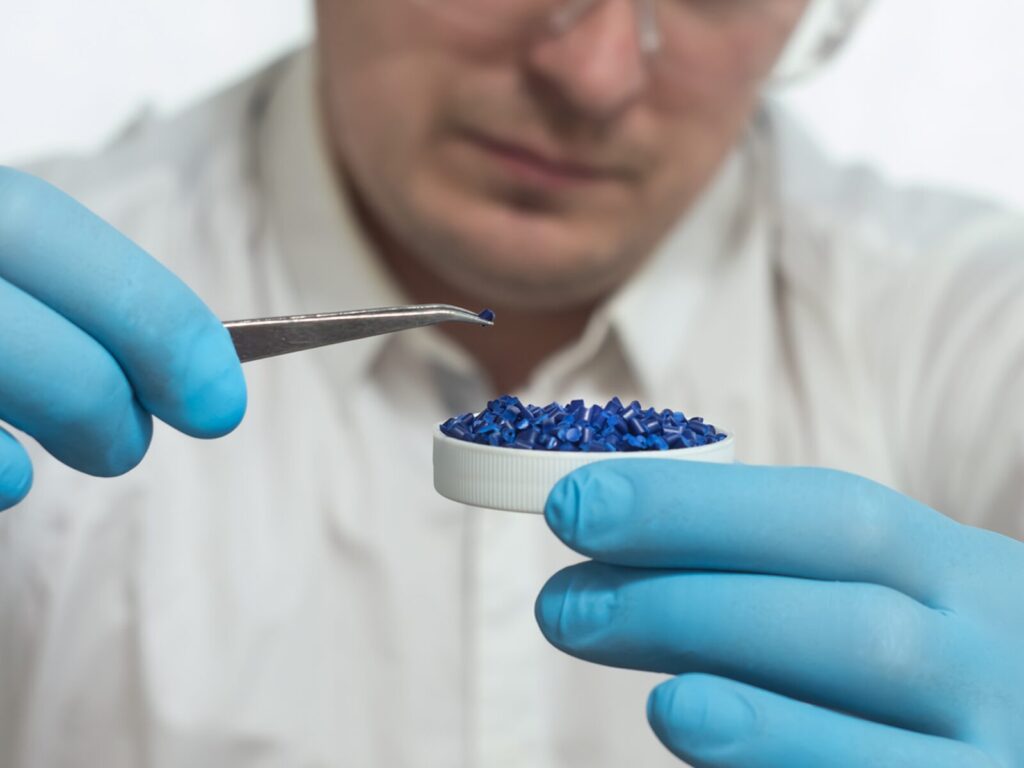Applied Technical Services performs DSC glass transition testing to help verify that their design materials suit the final assembly’s intended use. Each polymer has various performance properties that a product engineer must consider when selecting them for use in the final assembly. For example, polymers chosen for their elasticity must remain flexible, and those chosen for their sturdiness must remain rigid to successfully serve their purpose.
One crucial aspect of qualifying a polymer for use in a given service environment entails first knowing the range of temperatures native to the final assembly’s intended service conditions, and second knowing the candidate material’s thermal characteristics — such as a polymer’s glass transition temperature.
What is the Glass Transition Temperature?
The glass transition point is the temperature below which non-crystalline polymers become more brittle and above which they become more pliable. Ensuring that rigid polymers only see use in service environments with a temperature below this point can mean the difference between a product’s success or failure, and vice versa for elastic polymers.
Overlooking this thermal property during the product formulation phase can lead to failure analysis later down the line. Manufacturers contact respected polymer testing providers, like ATS, to determine their samples’ glass transition points. We use a method called DSC to discover this temperature.
DSC Testing
Our chemists frequently conduct this method of testing, most often to ASTM E1356 — a standard for which our Marietta testing facility maintains an ISO/IEC 17025:2017 through the American Association of Laboratory Accreditation (A2LA).
Beyond DSC analysis, ATS offers a variety of other polymer testing capabilities. From polymer identification to flammability characterization to flexural strength testing, click here to view our wide array of polymer testing services.
About ATS
Since our founding in 1967, Applied Technical Services has focused on consistently improving the scope and quality of our capabilities. In the 55+ years since then, our business has grown exponentially. Our experts specialize in various fields and perform a suite of other services — including testing, inspections, calibrations, consulting engineering, training, and forensic investigations — for clients operating around the world.
Of the many industries we serve, the industries that most benefit from our expertise in using DSC to determine a sample’s glass transition point include the following:
- Aerospace
- Automotive
- Consumer Products
- Defense
- Healthcare / Medical
- Insurance / Legal
- Manufacturing
ATS’ Commitment to Quality
Our chemical analysis division performs all its polymer testing services under the umbrella of our ISO 9001:2015-registered quality management system. We subjected our business procedures to a rigorous auditing process conducted by ISO-approved inspectors to gain this distinction; they found that our practices conformed to the internationally recognized standard on quality assurance principles.
ATS has upheld certified status without interruption since initially achieving it in 1998, periodically renewing our registration by passing subsequent audits. We submit ourselves to this level of scrutiny both to hold ourselves publicly accountable for the quality of service we provide and to demonstrate to our clientele that we respect them too much to give them anything but the best.
Dedicated to Customer Service
We uphold several policies to ensure our customers enjoy a fantastic experience working with ATS and give them a good reason to work with us again in the future. They include the following:
- Clear, accurate, and detailed reports
- Quick turnaround times
- Knowledgeable experts
- Accessible and responsive contacts
Contact Us
If your company needs to find the thermal characteristics of a polymer sample, contact ATS for a free quote. Call +1 (888) 287-5227 or click here to submit a request online.



